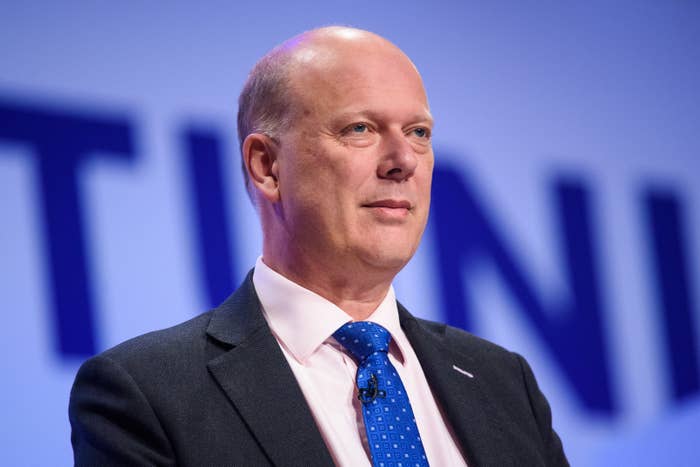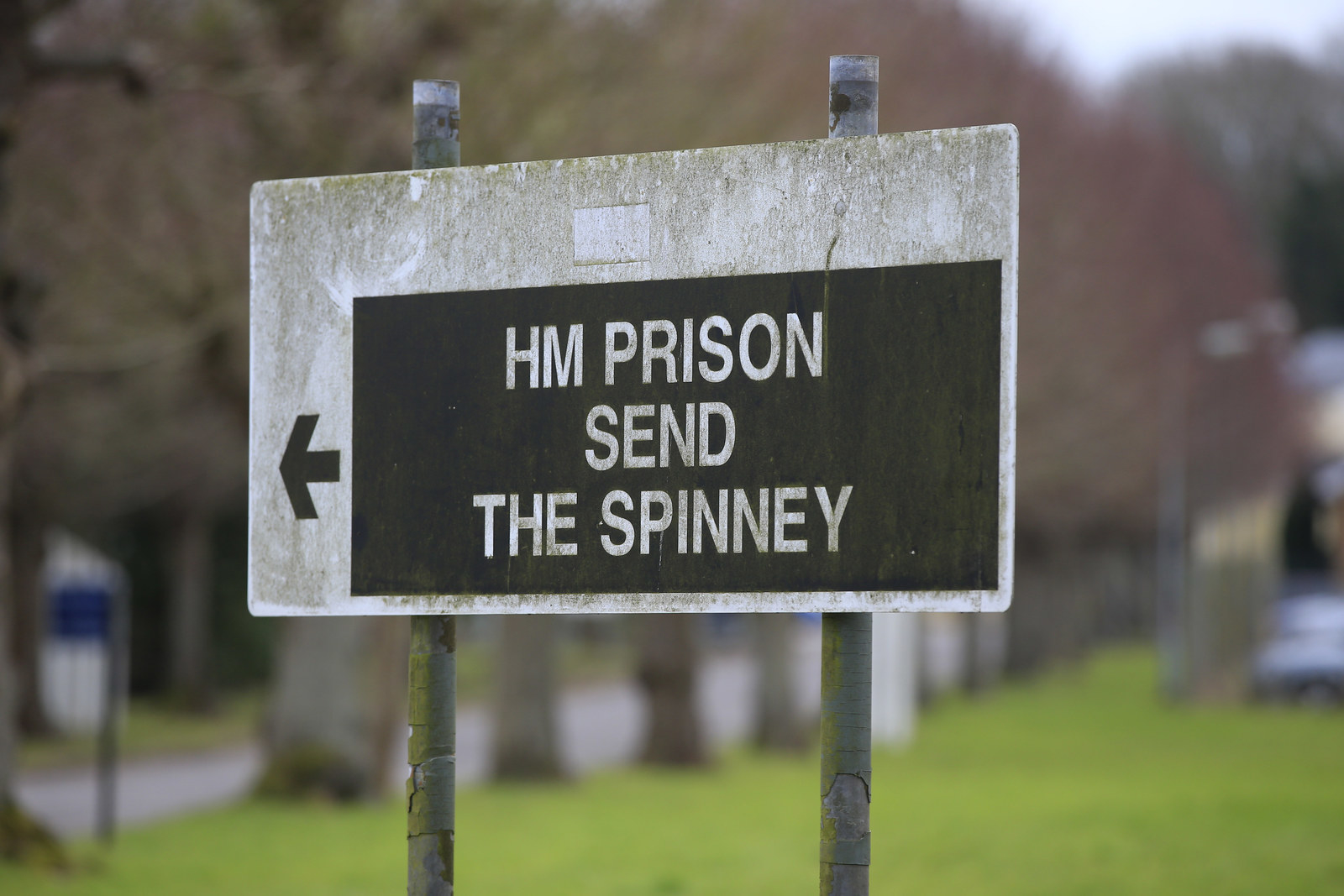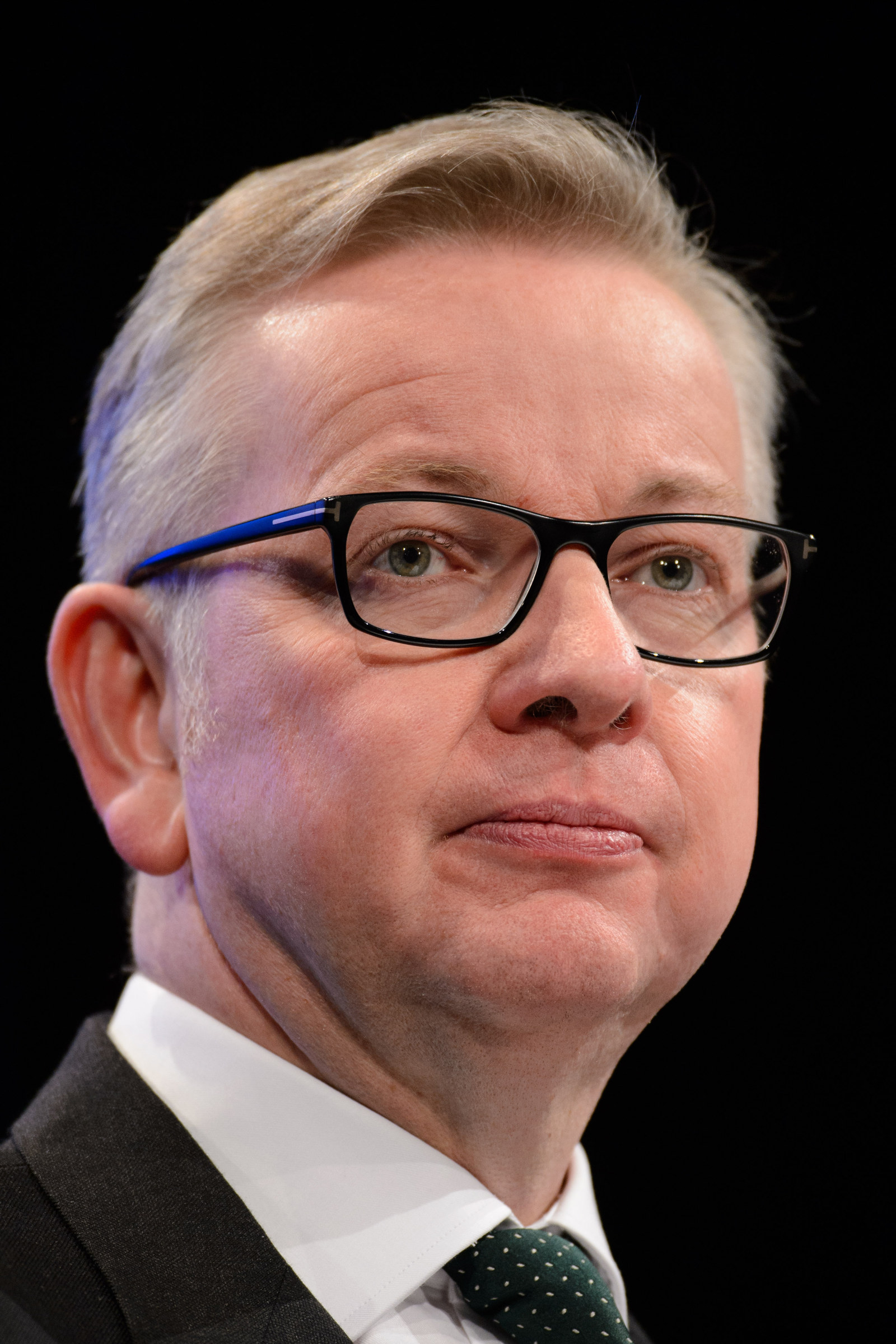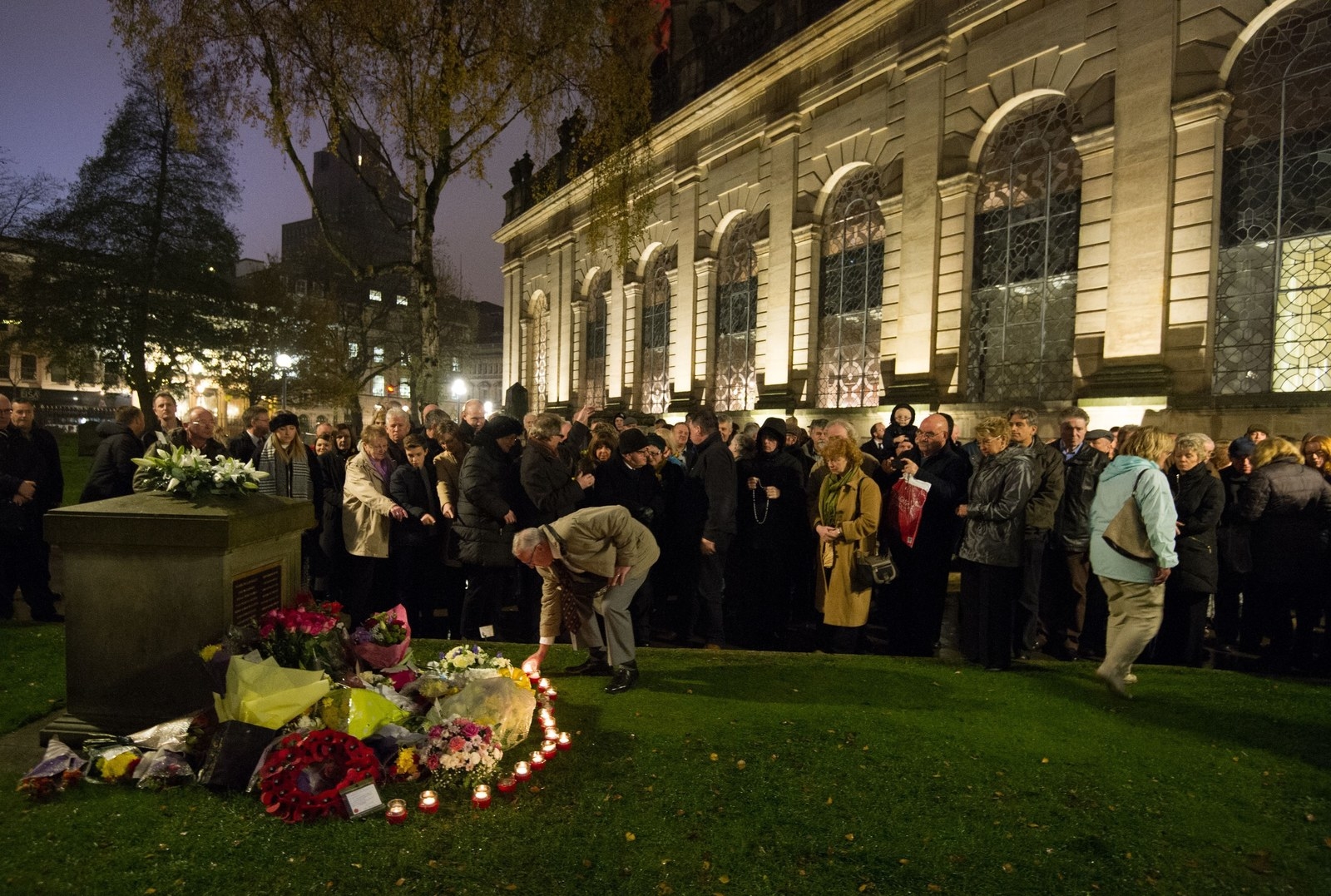People bringing legal challenges against the government have been refused public funding for a lawyer after ministers and Whitehall officials were given details of their applications, BuzzFeed News can reveal, raising questions over political interference in a supposedly independent process.
Legal aid is intended to ensure that people have access to a lawyer for major court cases even when they cannot afford it — a key component in holding government accountable.
But BuzzFeed News has learned of three high-profile cases challenging the government in which legal aid applications were turned down once the Ministry of Justice was aware of the application.
Since reforms in 2012, decisions about legal aid are made by the Legal Aid Agency — a theoretically independent arm of the MoJ. The LAA claims to work independently of government, but a special protocol for high-profile cases opens channels of communication.
Internal emails from LAA staff seen by BuzzFeed News show that officials, including in ministers’ private offices, had conversations about legal aid applications before decision-makers turned them down.
The emails, marked “OFFICIAL SENSITIVE”, reveal ministerial staff contacted the LAA to find out if legal aid had been granted in cases where the government was the defendant.
An internal memo sent among LAA staff on April 4, 2014, while Chris Grayling was justice secretary, listed three high-profile cases with pending applications for legal aid that needed to be briefed on. One was a legal challenge to a ban on prisoners receiving books, and the other two are redacted.
In one email, an assistant to the chief executive of the LAA writes: “had a call from SoS [secretary of state’s] office — I’m looking for some urgent advice on whether Barbara Gordon-Jones is receiving any legal aid for a JR she is bringing against the SoS re prison books.”

The tranche of emails reveal that conversations about cases between the MoJ, the minister’s office, and the LAA appear commonplace, despite the agency supposedly being an independent body.
The government says it “reject[s] entirely the suggestion of political interference”, but BuzzFeed News has scrutinised three recent controversial cases against it that were turned down for legal aid and found:
In a test case against the MoJ brought by a prisoner challenging a ban on prisoners receiving books, official emails seen by BuzzFeed News show legal aid was rejected after a phone call from Chris Grayling’s office and a series of messages between government and the LAA. Despite the LAA saying the case was not strong enough to merit legal aid, the prisoner won in the High Court after the lawyer took it on pro bono — and the law was overturned.
A challenge to the legality of a proposed government contract with the Saudi prison service was granted legal aid and then annulled retrospectively once a letter before claim was received by government. The lawyer bringing the case told BuzzFeed News the retrospective change of mind was unprecedented, outside the rules, and “indicative of political interference behind the scenes”.
Families whose relatives died in the Birmingham bombing were refused legal aid to challenge a ruling that Irish Republican Army members suspected to be behind the bombings would not be named at fresh inquests into the deaths. The Home Office, Ministry of Defence, Foreign Office, and police were all interested parties. The families were told they could not receive exceptional case funding because the case did not meet the merits test — yet a High Court judge had ruled it did have merit.
The LAA does not have its own media team and all press enquiries relating to legal aid applications are handled by the MoJ. The situation means that government press officers — and sometimes ministers — are briefed about pending legal aid applications in high-profile cases before a decision is made.
The department’s policy for handling high-profile cases was released by the MoJ, following a Freedom of Information request from the Legal Aid Practitioners Group. It says, “Where a case is already attracting media attention it should always be referred to the LAA’s Communications Team.” This is a team that does not speak to journalists but works closely with the MoJ press office, which does.
The policy makes it clear that a case will be considered as high-profile — and therefore shared with MoJ staff — when the “decision whether to grant or refuse legal aid to the client could cause serious reputational damage to the LAA … this might include funding high profile persons challenging the state, in circumstances that may attract hostile publicity or controversy or, conversely, refusing funding to an individual in a matter that is likely to attract widespread public sympathy.”
An increasing number of lawyers have contacted the Legal Aid Practitioners Group worried that there may have been “political interference or influence” in their legal aid applications. The removal of guaranteed legal aid for judicial review applications when challenging the behaviour of public bodies, including government, has added to concerns about transparency. In a report last year, LAPG said: “The constitutional implications of obstructing the right of challenge to the state by removing payment for cases are serious and contrary to principles of fairness and access to the Courts.”
Carol Storer, director of the LAPG, told BuzzFeed News: “A number of practitioners have contacted LAPG to express concerns that there is a real risk of political interference in some legal aid decisions where the government has an interest. The cases often raise issues of great importance, legally and constitutionally. The high profile policy creates the risk of political interference with decisions about which legal challenges may or may not be brought, which should be completely independent of government.”
To qualify for legal aid a person first has to prove they meet a strict means test, but there is also a more subjective merits test, which judges factors such as the likelihood of success and the benefit to the client of the case.
BuzzFeed News revealed in January that the proportion of people being turned down for criminal legal aid because of a subjective “interests of justice” test had increased from 47% to 67% since the LAA took on responsibility. The IOJ test used to be decided in courts by expert clerks and legal advisers, but since the LAA took on decision-making, lawyers and court staff say that the IOJ test has been interpreted much more harshly.
BuzzFeed News applied under FOI for the number of civil cases turned down for legal aid on merits grounds annually where the MoJ was a party in the case. This was refused on the grounds that it would be too expensive to find the information. The MoJ did release general figures, showing that in 2017–18, 3,008 civil cases were refused on merits in the whole country. Only a fraction of these would relate to government.
Richard Burgon, shadow justice secretary, said: “This is deeply concerning and the government appears to have serious questions to answer. Any political interference — or even just the perception of political interference — risks undermining public trust in the Legal Aid Agency. This will only add to the pressure for the Legal Aid Agency to be replaced by an independent body that operates fully at arm’s length from the government, as recommended by the Labour Party–initiated Bach Review into access to justice.”
Barbara Gordon-Jones was a prisoner serving time for arson at HMP Send and a voracious reader. She had studied literature and wanted to bring a test case against a ban on prisoners receiving books introduced by then–justice secretary Grayling.
Her application for legal aid to challenge the new rules was turned down on merits — but after she won the case with a lawyer acting pro bono, she applied for all communication about her legal aid in a subject access request. The partially redacted emails, shared with BuzzFeed News, clearly show conversations between the LAA and the secretary of state’s staff about legal aid.

On April 3 an assistant to the chief executive of the Legal Aid Agency sent an email outlining a call from the justice secretary’s office asking about legal aid in the case. The following day, David Keegan, the head of complex and high-cost cases at the Legal Aid Agency, listed it as one of three cases that the MoJ needed to be briefed on. The other two cases are redacted.
On the April 10, an email was sent to the minister’s private office from a ‘communications and information handling manager’ in the LAA, saying, “Just to update you that the LAA has received an application looking to challenge the policy on not allowing books to be delivered to prisoners. We still need some more information before we can properly assess the application, so in the meantime, it’s my view that there will not be any possibility of media coverage this evening.”
They added: “I will of course provide a briefing for you and Press Office (Who I will verbally brief just now). In any case, I’ll draft something tomorrow for you and for Press Office, for weekend cover.”
A month later the application was rejected on the grounds that it did not meet the “merits test” — yet the case was later won.
Gordon-Jones’ solicitor, Sam Genen, said he did not complain at the time due to concern that future legal aid applications would be refused. Earlier this week he began the process of a formal complaint to the Parliamentary and Health Service Ombudsman.
He told BuzzFeed News: “A request was made on behalf of Ms Gordon-Jones to obtain all correspondence from the MOJ on her file. At first a single email was disclosed at the top of the file which required further investigation. It is clear that after Ms Gordon-Jone’s application was made the private office for the Defendant (Secretary of State for Justice) contacted the Legal Aid Agency. The application was delayed in any formal consideration and then refused. Despite being refused the case was won on a pro-bono basis.”
Genen also believes the solicitor who dealt with the subsequent appeal specialised in criminal, not public, law and did not have all the paperwork he had provided to the LAA.
He said, “It is inferred that because of the contact which appears to be consistent and sustained that the private office of the secretary of state for justice may have had a direct or indirect impact on the refusal of legal aid. I have not complained due to concern that future applications would be refused and my clients would be prejudiced.”
A British man known as AB, who was tortured and imprisoned in Saudi Arabia, challenged the legality of a government contract to provide prison and probation services in Saudi Arabia. Just Solutions International was the commercial arm of the MoJ set up by Grayling. It won a contract to provide training to prison staff in Saudi Arabia.

Legal aid was granted to the man to bring a case on Feb. 25, 2015, and within a few hours, his lawyer sent the MoJ and Foreign Office a letter before claim. A month later, at a time when both government departments were already working on the case, his lawyer received a letter saying legal aid had been “annulled” with retrospective effect.
In a statement written shortly afterwards, AB’s solicitor, Adam Hundt of Deighton Pierce Glynn, said: “On 25 March 2015, I was notified by the Legal Aid Agency that AB’s Legal Aid Certificate had been ‘annulled’ with retrospective effect. This is not a mechanism provided for in the statutory regime or guidance relating to Legal Aid, and not a decision that I or anyone in my firm had previously encountered, so I was somewhat taken aback by it.”

The LAA argued — in contrast to its initial assessment — that he did not qualify for legal aid because the judicial review would not directly benefit him. AB travelled regularly to Saudi Arabia, risking imprisonment, and argued the government’s work with the Saudis might strengthen their prison provision. But the LAA said the concern that he might, in the future, be at risk of detention on arrival was not “significant” enough a benefit to qualify, despite the merits policy only stating that there has to be “potential” to qualify.
In June a High Court bid was launched using a different claimant, after AB became frightened of his family being harmed by his involvement in the case. Hundt believes the sudden change in legal aid made AB more nervous about taking part.
The High Court challenge did not progress further, because in October the programme — and the organisation which pushed it — was scrapped by Grayling’s successor, Michael Gove. The decision to abandon it was announced on the day the MoJ was due to serve its defence.
Hundt told BuzzFeed News: “This is indicative of political interference behind the scenes in what should be independent decision-making, interference which is calculated to avoid accountability for the government’s unlawful actions. This undermines the rule of law to a worrying degree, something that we have seen this and previous governments have repeatedly attempted to do.”
The families affected by one of Britain’s deadliest terror attacks were forced to crowdfund for the legal fees they needed to challenge the government position at an inquest into their relatives’ deaths.
Relatives of those killed in the Birmingham pub bombings in 1974 were given permission for a judicial review of a decision not to identify suspected bombers in the upcoming inquest after a High Court judge ruled the challenge was in the public interest. Despite this, the LAA said they did not meet strict criteria for exceptional case funding, which includes a subjective assessment of how likely someone is to win. The court of appeal has now overturned the High Court decision and agreed with the coroner that the suspected bombers will not be named.
The families had earlier won legal aid for the inquest itself, but even that took time, as eight families were initially refused it on the grounds that the firm representing them was based in Northern Ireland.

In a sign that the MoJ and LAA were communicating about the legal aid situation, following this earlier dispute, the MoJ briefed the judge in an email when the legal aid status of the families changed, despite neither the families nor their lawyers having informed them.
In a statement to Buzzfeed News, Christopher Stanley, a lawyer at KRW law, who represents several of the families, said: “The LAA is an independent agency of the Ministry of Justice. It is important that for its integrity the LAA must be seen [to] be acting independently in its decision-making processes relating to legal aid.”
He acknowledged that cost had to be taken into account in legal aid decisions involving complex cases such as the Birmingham pub bombing, bringing an “acutely political dynamic” but, he said, that “should not facilitate decision being influenced by political considerations”.
He added that it was “unusual” that the coroner in this case had been sent emails between a solicitors firm and the LAA without them being requested.
The situation is causing concern in legal circles, where there are fears that the transfer of legal aid decisions from court staff to civil servants risks compromising their independence.

Sara Lomri, deputy legal director of the Public Law Project, said: “The LAA provide people with access to the courts and its independence has to be beyond question. Many of the legal cases reported in popular press are claims for judicial review. These cases are newsworthy because they often involve one person taking on the might of the state: They are challenging the state’s legal authority to do what it has done. Legal aid is often the only option available to people who are asking the courts to check that the state has acted lawfully.
“It would be seriously concerning if individuals bringing the state to account via the courts had their cases hindered because of the amount of media attention on the state. Whilst PLP can’t comment on any specific case without knowing the full details, we can say that the LAA’s decision making must be adequately insulated.”
BuzzFeed News gave the Ministry of Justice press office two days to respond to a series of specific questions about these cases and its handling of legal aid applications where the government was a party. The ministry was given summaries of the correspondence with the secretary of state’s office that BuzzFeed News had seen in the prisoners’ books case — as well as detailed concerns over how decisions were made in the Saudi prisons and Birmingham bomb inquest cases.
They refused to answer anything specific, simply issuing a brief statement.
A government spokesperson said: “We reject entirely the suggestion of political interference in the legal aid process. In fact, this government made changes under LASPO [the Legal Aid, Sentencing and Punishment of Offenders Act 2012] to increase the independence of the agency and enshrine it in law.
“It is usual practice for information to be shared between an executive agency and the responsible government department in certain circumstances. This would not extend to confidential details of an application.
“As part of their inbuilt assurance processes, the LAA can review all legal aid decisions and change these if the application does not meet the relevant merits criteria.”
UPDATE
Following publication of this article, having failed to respond to specific points in the two days given, the MoJ contacted BuzzFeed News to say that the high-profile case policy was referring to the LAA’s own communications team. The MoJ acknowledged that information was shared with the MoJ press office, but claimed — despite the email evidence to the contrary — that this was only once a final decision had been made.
CORRECTION
Before reforms in 2012, legal aid decisions in civil cases were made by the now defunct Legal Services Commission, while court officials decided on criminal cases. An earlier version of this story said civil legal aid decisions were made by court officials.

